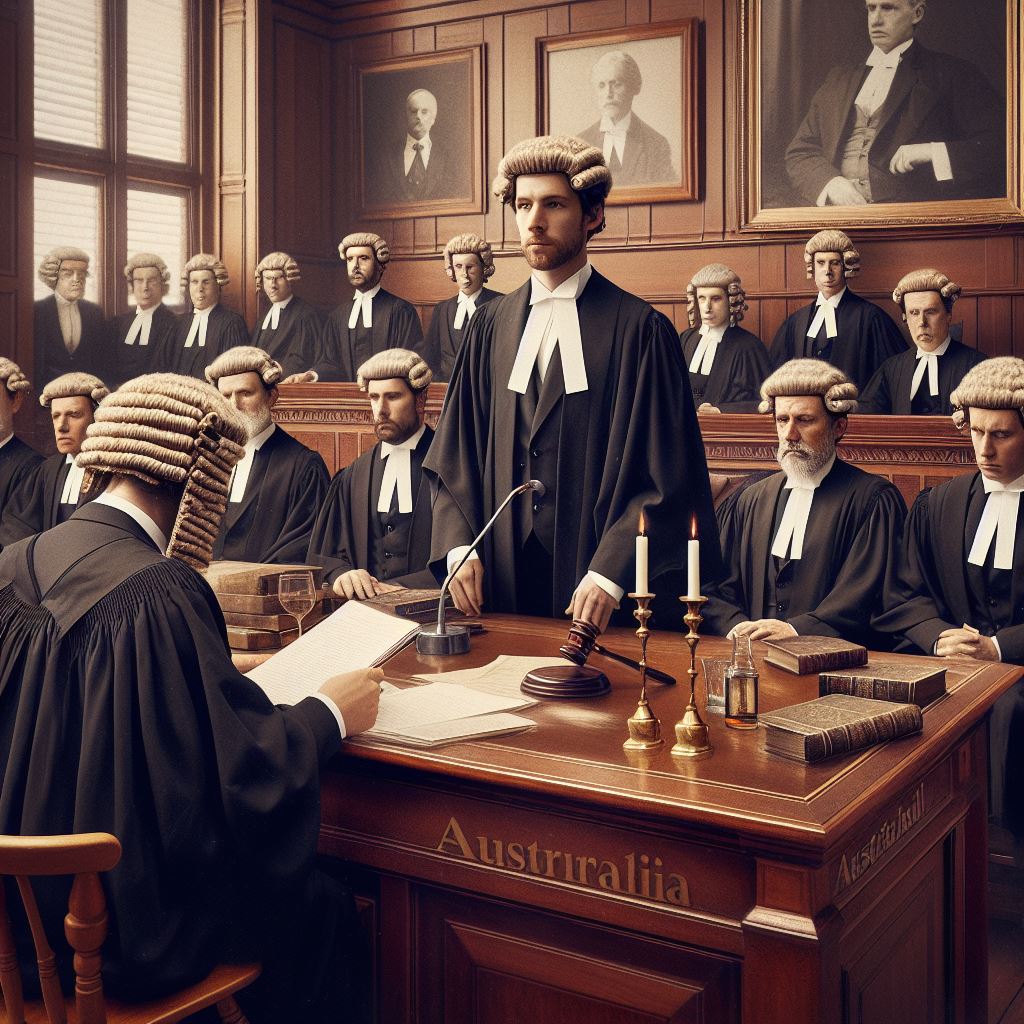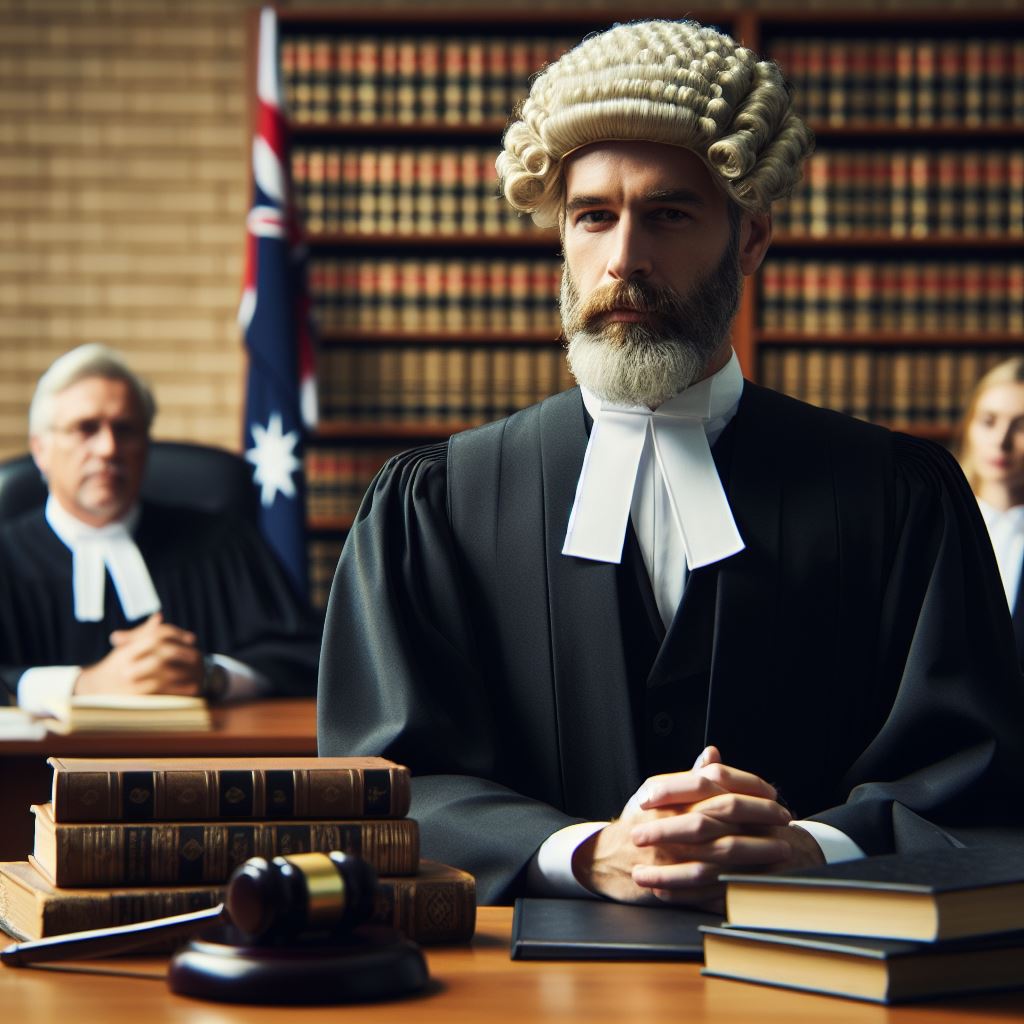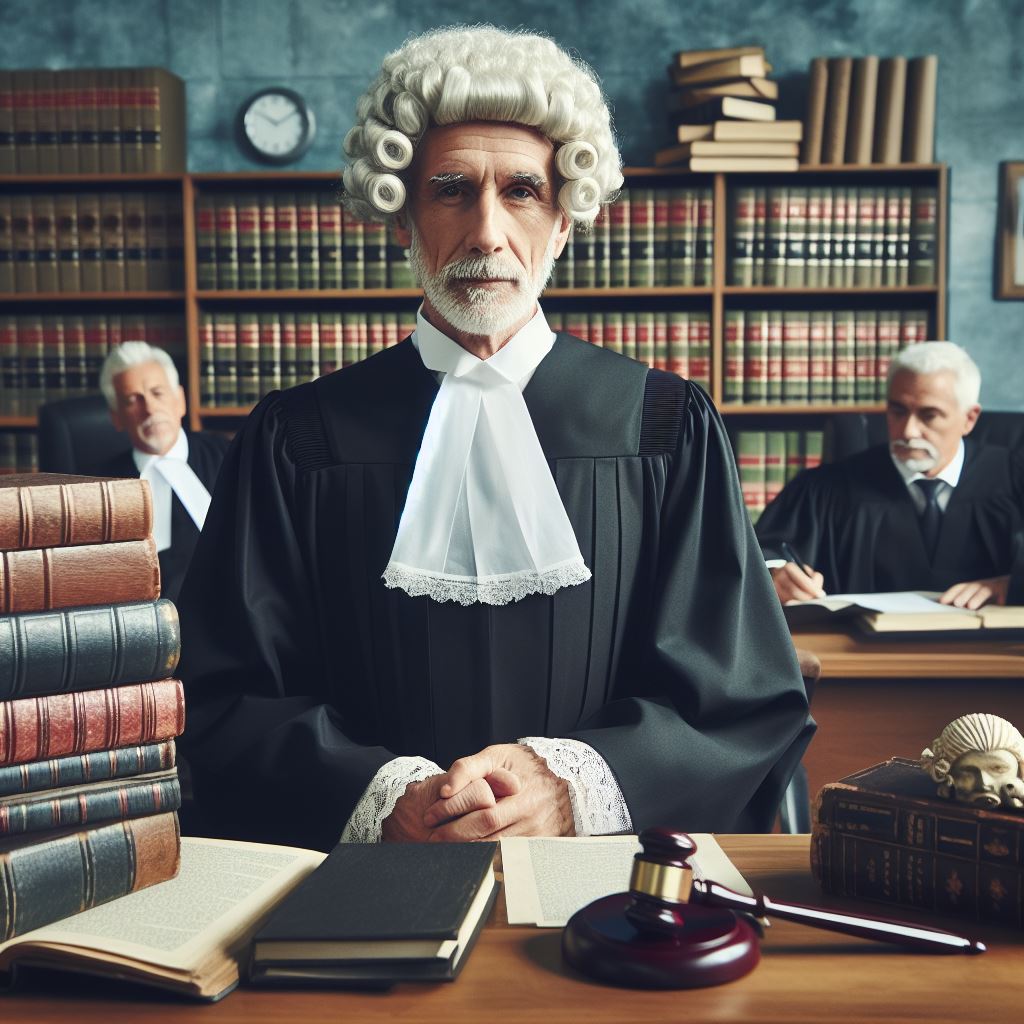Introduction
Within the intricate framework of the legal system, Court Security Officers (CSOs) emerge as guardians of order and safety.
CSOs are trained professionals entrusted with the responsibility of maintaining a secure environment within court premises.
They serve as the first line of defense, ensuring the protection of all individuals involved in legal proceedings, from judges and attorneys to witnesses and the public.
These officers operate at the intersection of law enforcement and judicial proceedings, contributing significantly to the overall functionality of the court system.
The significance of court security cannot be overstated, as it is intrinsically linked to the foundational principles of justice and fairness.
The courtroom, meant to be a bastion of impartiality, hinges on an atmosphere free from external influences or threats.
CSOs play a pivotal role in upholding this sanctity by preemptively addressing and mitigating potential security risks.
Their presence instills a sense of order, fostering an environment where legal proceedings can unfold without fear or disruption.
Moreover, the safety of all participants in legal processes is paramount.
CSOs not only deter potential security breaches but also respond adeptly to any emergent situations, safeguarding the well-being of everyone present.
In doing so, they contribute to the preservation of the rule of law, ensuring that justice is dispensed in an atmosphere that reflects the principles of fairness, equity, and security.
This introduction sets the stage for a deeper exploration of the multifaceted role of Court Security Officers and the integral part they play in upholding the integrity of legal proceedings within a framework of safety and order.
Read: Legal Ethics: What Guides Aussie Lawyers?
Roles of Court Security Officers
Court security officers play a crucial role in maintaining order and security within the courtroom. They contribute significantly to the proper functioning of the justice system.
Here are some specific roles and challenges they face in carrying out their responsibilities.
Maintaining order and security in the courtroom
In order to ensure the smooth proceedings of court cases, court security officers are tasked with maintaining order and security within the courtroom.
This involves screening individuals entering the courtroom, including lawyers, defendants, spectators, and other court personnel.
By thoroughly inspecting their belongings, court security officers can identify any prohibited items that may pose a threat.
Additionally, court security officers enforce rules and regulations within the courtroom.
This includes ensuring proper conduct during proceedings, such as prohibiting disruptive behavior, maintaining decorum, and preventing any attempt to influence the outcome of the case.
By enforcing these rules, court security officers contribute to a fair and impartial judicial process.
Protection and safety of judges, jurors, witnesses, and all court personnel
Court security officers have a crucial role in protecting the safety of everyone present in the courtroom, including judges, jurors, witnesses, and all court personnel.
They constantly monitor the surroundings and mitigate potential threats that may arise during court proceedings.
In emergencies or situations requiring immediate action, court security officers are trained to respond quickly and effectively.
They are prepared to handle various situations, such as protests, disruptions, or acts of violence.
By promptly addressing these incidents, court security officers maintain a secure environment for all individuals involved in the justice system.
Managing access control and surveillance
One of the primary responsibilities of court security officers is managing access control within the courthouse.
They monitor and control entry and exit points to ensure only authorized individuals enter specific areas, such as courtrooms, judges’ chambers, and restricted areas.
Court security officers utilize advanced security technology and systems to enhance access control.
This includes metal detectors, X-ray scanners, and CCTV cameras.
These tools enable them to detect any potential threats and prevent unauthorized individuals from entering secure areas.
By effectively managing access control, court security officers contribute to maintaining a secure and controlled environment within the courthouse.
In review, court security officers play a crucial role in maintaining order and security in the courtroom.
Their responsibilities encompass maintaining order, protecting the safety of all individuals involved, and managing access control.
Despite the challenges they face, court security officers ensure the proper functioning of the justice system by creating a safe and secure environment for all court proceedings.
Read: Family Law in Australia: Key Things to Know
Discover More: Law Clerks: Your Path to a Legal Career
Gain More Insights: Legal Document Handling Tips for Secretaries
Challenges Faced by Court Security Officers
Court security officers face numerous challenges in their roles to ensure the safety and integrity of the court environment. Each day, they encounter potentially volatile situations that require their immediate attention and expertise.
Dealing with potentially volatile situations
- Court security officers must be skilled in conflict resolution and de-escalation techniques.
- They are responsible for addressing disruptive behavior and maintaining courtroom decorum.
One of the primary challenges for court security officers is dealing with conflicts and maintaining order within the courtroom. They need to possess conflict resolution and de-escalation techniques to defuse tense situations effectively.
Their role includes addressing disruptive behavior, such as outbursts or disturbances, to uphold courtroom decorum.
Risk assessment and threat management
- Officers need to identify potential security threats and vulnerabilities within the courthouse.
- They must implement proactive security measures to ensure the safety of all individuals present.
Risk assessment and threat management are also critical responsibilities of court security officers. They must constantly evaluate the courthouse to identify potential security threats and vulnerabilities.
By understanding these risks, officers can implement proactive security measures to prevent any potential harm to judges, lawyers, witnesses, and the public.
Balancing security with the need for public access and transparency
- Court security officers must ensure fair and open court proceedings for justice to be served.
- They are tasked with maintaining public trust and confidence in the judicial system.
Another significant challenge faced by court security officers is finding a balance between security measures and the public’s need for access and transparency.
While their primary objective is to ensure safety, officers must also ensure fair and open court proceedings.
It is imperative to protect the rights of the accused and maintain public trust in the judicial system.
Maintaining public trust and confidence is crucial for court security agents.
They are representatives of the justice system and play a vital role in upholding its credibility.
By conducting themselves with professionalism and integrity, officers can foster trust among the public, ensuring they have confidence in the judicial process.
The challenges faced by court security officers require a combination of skill, knowledge, and adaptability.
Training programs and continued education are essential to equip these officers with the necessary tools to fulfill their duties effectively.
Regular evaluations and updates to security protocols are also vital to address emerging threats and maintain an optimal level of courthouse security.
In essence, court security officers face various challenges in their roles to maintain the safety and integrity of courtrooms.
From dealing with potentially volatile situations to balancing the need for security and public access, these officers play a crucial role in the judicial system.
Their expertise in conflict resolution, risk assessment, and maintaining public trust ensures the fair and transparent administration of justice.
Read: Employment Law: Rights and Duties in Oz

See Related Content: Judicial Assistants in Australia Explained
Your Personalized Career Strategy
Unlock your potential with tailored career consulting. Get clear, actionable steps designed for your success. Start now!
Get StartedTraining and Qualifications for Court Security Officers
Training and qualifications for court security officers are crucial to maintaining a safe and secure courtroom environment.
These officers play a vital role in safeguarding judges, attorneys, witnesses, and visitors, as well as ensuring the smooth operation of legal proceedings.
To effectively carry out their duties, court security officers need to possess specific skills and competencies.
Essential skills and competencies
- Knowledge of legal procedures and protocols: court security agents must have a solid understanding of legal processes and the protocols followed within a courtroom. This knowledge enables them to navigate the complex legal environment, identify potential threats, and respond appropriately to emergencies.
- Strong communication and interpersonal skills: Effective communication is crucial for court security agent to interact with judges, attorneys, witnesses, and members of the public. They need to be able to convey information clearly and professionally, diffuse conflicts, and maintain a calm and respectful demeanor in high-stress situations.
- Physical fitness and self-defense training: Court security officers must be physically fit and capable of responding to physical altercations or threats. They undergo rigorous training in self-defense techniques to protect themselves and others if the need arises. Maintaining their physical fitness is crucial to carry out their duties effectively.
Certification and professional development
- Required certifications and qualifications: Court security officers are typically required to obtain specific certifications and meet certain qualifications. These may include completing a basic training academy, passing background checks, and obtaining necessary licenses or permits. These certifications ensure that officers meet established standards and are fully prepared for their roles.
- Ongoing training programs and opportunities for career advancement: Continued professional development is essential for court security agent to stay updated on evolving security protocols and techniques. Ongoing training programs provide opportunities to enhance their skills and knowledge. With specialized training, officers can advance in their careers and take on more significant responsibilities such as supervisory roles.
In a nutshell, the training and qualifications of court security agents are of utmost importance in maintaining a secure environment within courtrooms.
Their knowledge of legal procedures and protocols, strong communication and interpersonal skills, and physical fitness and self-defense training enable them to carry out their duties effectively.
Additionally, certifications and ongoing professional development opportunities ensure that officers remain up-to-date with the latest security measures and can progress in their careers.
By investing in the training and development of court security agents, the judicial system enhances safety and promotes the proper functioning of legal proceedings.
Read: Personal Injury Law in Australia: Basics
Conclusion
Court security officers are responsible for maintaining safety and order within the courthouse premises,
including protecting judges, lawyers, employees, and visitors.
They face a range of challenges, from potential threats and violence to managing large crowds and maintaining court decorum.
These officers perform critical tasks like screening individuals and belongings, ensuring courtroom security, and responding to emergencies.
Their vigilance, quick thinking, and strong communication skills are essential for preventing incidents and handling conflicts effectively.
Court security officers play a vital role in upholding the values of justice by safeguarding court proceedings,
ensuring that trials are fair and impartial.
They are the first line of defense against security breaches and acts of violence inside the courthouse,
helping to maintain order and protect the integrity of the justice system.
Their commitment and dedication contribute significantly to a safe and secure environment for all those involved in legal proceedings.
As the cornerstone of any civilized society, the justice system requires robust security measures to function effectively.
Investing in court security is essential to protect the rights of individuals, maintain public trust in the judiciary,
and ensure the smooth operation of legal processes.
Providing adequate resources, proper training, and support to court security agent is crucial in order to strengthen security, prevent potential threats, and promote justice.
By prioritizing court security, we demonstrate our commitment to upholding the rule of law and creating a secure environment for judges, attorneys, defendants, witnesses, and countless others who rely on the justice system.




